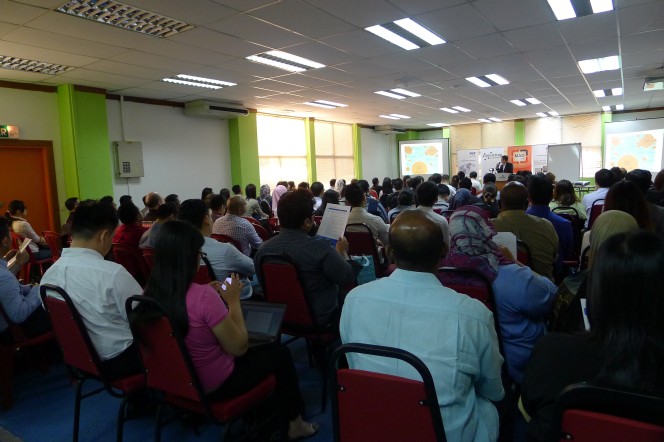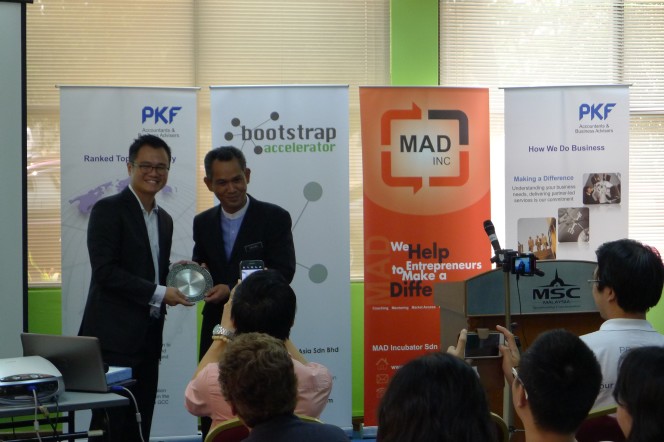
We have faced this question many times before over the course of 7 years working on PCI-DSS in this region. Many customers have asked us, why haven’t we become QSA (Qualified Security Assessor), considering the amount of PCI work we have been involved in, as well as the PCI-DSS knowledge that we are having?
The answer is simply – we choose not to.
Don’t get me wrong. QSAs certainly have their place in our world, and the fact that we work closely with one, as well as representing them in our country states the importance of having a solid auditing foundation in every project that we go in.
But here are the main reasons why we have decided that being a QSA would hinder us, rather than assist us:
a) Conflict of Interest
This is a huge reason why we maintain our consulting and implementation practice, while choosing not to become an auditor. Our business is not just PCI-DSS. We have a huge chunk of consulting practices in ISMS (ISO27001), training as well as upcoming compliances like SOC1,2, Personal Data Protection Act etc. QSAs and the question conflict of interest has been around for a long time. It is also addressed in Provision 2.2.2 in the PCI-DSS validation requirements for QSA
The QSA must describe the company’s practices to maintain and assure auditor independence, including, but not limited to, practices, organizational structure/separation, and employee education in place to prevent conflicts of
interest in a variety of scenarios, such as the following:The QSA customer uses products or applications developed or manufactured by the QSA company.
The QSA customer uses products or applications managed or configured by the QSA company.
The description must include details with respect to compliance with the Specified Independence Requirements called out in Section 2.1 above.
The thing is, we do a fair bit of work for our clients – including development of policies, reviewing their security, implementing policies and logging products etc – because we are good at it. Before PCI, we were operational guys, guiding SOCs and NOCs, troubleshooting routers and switches, deploying firewalls and SIEMs etc. We weren’t bred as auditors from the start, so most of us have an inherent instinct to just go in and get the job done for our clients. Now, the problem is once we do wear the auditor’s hat, there are a lot of grey areas. We make this demarcation very distinct in our IT general Controls audit – the moment we implement something for our client, we cannot audit or assess it. We can’t audit our own work. This is not just for PCI, this goes across the board for anything we do.
PCI gets around this by ensuring that the QSA has proper internal segregation – meaning it is generally accepted that policies be put into place that mandate a separation of duties between QSA Auditors and QSAs, or other individuals within a QSA certified company who provide remediation support. So generally, any QSA company should have its consulting group separated from its audit group. Now, PCI-SSC doesn’t specifically state that QSA Companies cannot provide remediative services – after all, if the QSAs know what it takes to pass PCI-DSS wouldn’t they be the best source of knowledge to clients after all (and they often are) – but QSAs need to be very aware that they cannot push their products or services as the only option for compliance. Customers must have the options on the table, the knowledge that there are other options in order for them to make informed decisions.
It’s made trickier due to our DNA as a CPA company. PKF wasn’t born an IT company or a security firm – our roots are in accounting and auditing, and most of our partners hail from Big 4 (PWC, KPMG, EY, Deloitte) and even ex-AA. In fact, I am the only non-audit guy in the partner table and my jokes are often not understood. Due to this background, inherently we have this default position whereby if there are any grey areas, it’s safer to err on the side of caution and not do it unless proper conditions are clear. So while in PCI the arrangement of QSACs providing remediation works are allowed with certain conditions, the very memory of how an 89 year old accounting firm had to surrender its CPA license due to the largest auditing scandal in history still lives on in our industry.
b) We Hate Auditing
Well not really. We are auditors after all! We do have a fair bit of audit and assessments as part of our work. But boy, have you ever been in an audit as an auditor? Everyone just hates you. I remember auditing for a very large BPO company for their IT general controls and software development. The head of software looked like he was going to put live electric eels down our pants halfway through our interview. And we weren’t even antagonistic. Asking for documentation of his software practices was like asking for the what Edward Snowden had. Another company had their head of operations sit with us in the room for 1 hour and throughout the entire session, he refused to answer anything without legal in the same room. It was like we were interrogating him for murder instead of just asking if he had a change management procedure. It’s not all like this of course, we do have excellent clients who are on the same page as us mostly and we do feel the whole auditing process is enriching to our professional lives. Really. Even with that, the follow up audits, the report writing and quality assurance process etc, the evidence gathering and formatting into the proper report, the cycle of obtaining management comments etc. It’s just very taxing on the guys. Report writing takes up a chunk. And guess what – in PCI, a normal Report on Compliance (ROC) for level 1 onsite assessments can stretch up to a thousand pages. Yes. A. Thousand. Or more. It’s like asking us to become Leo Tolstoy and start writing War and Peace every single assignment.
c) Cost vs Benefit
Being a QSA is a great achievement. But there is a huge outlay for the company as well. Not only there are fees you need to pay to become QSA, there are fees you need to pay to operate in particular regions as well. Then you have training fees for your QSAs, yearly maintenance etc. It’s a lot of money to run a QSA company and because of that, you need to get your bacon from all over. For instance, if you have license in Asia-Pacific, then you probably want to tackle the China market. Or else, focus on the SEA region and get your QSAs to fly between countries. Focusing on a single country isn’t going to make up for the cost of maintaining your QSA company, at least from our point of view and our brief calculations. Now because of this, we need to fan out. To fan out, we need to expand the company. To expand, we need to hire and get jobs. I’m all for it, but its a matter of being a big fish in a small pond or a small fish in a big pond. As of this moment, our strategy is not to overstretch ourselves too much and to establish ourselves with the clients we have. It’s not as if PKF is in a hurry to IPO or go anywhere. We’re here for the long run, and in Standard Chartered slogan: We are here for good.
d) Stretching is not fun
We tried it before.
As in not physically, but in terms of a company. We grew our tiny little professional services firm to 16 people once upon a time, with dedicated R&D and Project Management group only to get kicked in the butt by a guy called “No Jobs”. We grew so fast, we didn’t get the sales in to keep up and after the initial projects were done, we were left with a lot of people on the bench playing Pokemon-go. We stretched. But we over did it. It’s not to say we are now not being ambitious. We still are, but we need to be realistic with our goals. If we target to get 10 – 15 tier one customers to keep our benefit more than our cost – how many QSAs do we need to do that? After that, how many consultants to do the remediation work?
Additionally, even if we had 10 QSAs for instance, these guys will be scrambling all over the region doing audits. They won’t have time for operational work. They won’t have time for consulting or providing technical services. They will either be auditing a customer, or they will be on a plane somewhere, or they will be writing or reviewing one of those 1000 pages tomes called the ROC.
e) We Want to Stick with our Customers
The bottom line is this. If we hadn’t found a trusted QSA whom we can work with and who are mostly on the same page as us, we would have gone and gotten our QSA ourselves and went another direction. I think we have enough legs and enough entrenchment in the region and global to do that. But we found a great partner. We found a QSA that we could work with and didn’t do any BS work. We found a QSA that had similar philosophies (although we are still working in synching our concept of deadlines, but hey, that’s like marriage, ain’t it) – and for 7 years, we have been working great together. They like what we do, that they can hands off a lot of the remediation advisory to us and don’t have to get on conference calls all the time or have to fly in and out of our client’s offices for weekly meetings. We like that we can work with our customer, look after our client’s interest and not worry to much about whether we are overstepping our limits as advisors or consultants versus auditors. We can stick with our customers and give them all we have. We can spend a whole day in our customer’s premise working with them without worrying that we need to head off for an audit for 2 weeks in Timbaktu. We don’t have to fly in and out of countries or tell our clients we can only meet 2 weeks later. If you want us within 24 hours, we will have someone there. Best of all, it’s very clear that once auditing starts, we are sitting on the side of our client, and ensuring that our client have what it takes to pass PCI-DSS.
Of course, this is simply our view at this current time. We are well aware of the flowing and ebbing of different forces in our industry and it might come a time whereby this model doesn’t work anymore. But for now, honestly, we just want to get cracking at troubleshooting your Cisco ASA as opposed to writing a War and Peace Novel. Drop us a note at pcidss@pkfmalaysia.com for more information!




